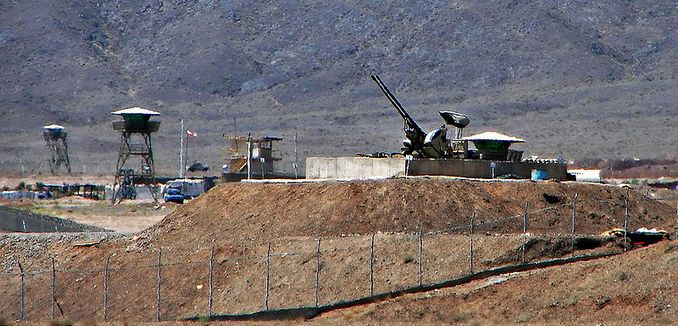Talks in Kazakhstan between the P5+1 and Iran have ended without any evident progress. This comes as no surprise, since Iran entered the talks with a posture described by analysts as “defiant.” Reports indicate that Iran emerged from the talks upbeat.
Going in, Western expectations were described as low, and despite a renewed offer by P5+1, Iran’s continued defiance of multiple U.N. Security Council resolutions meant that those expectations were met:
The six powers offered at the Feb. 26-27 Almaty meeting to lift some sanctions if Iran scaled back nuclear activity that the West fears could be used to build a bomb. Tehran, which says its programme is entirely peaceful, did not agree to do so and the sides did not appear any closer to a deal to resolve a decade-old dispute that could lead to another war in the Middle East if diplomacy fails.
After several years of investigation and resolutions beginning in 2002 by the International Atomic Energy Agency, in 2006 the U.N. Security Council passed the first of several binding Chapter VII resolutions demanding that Iran “suspend all uranium enrichment-related and reprocessing activities.” Now, more than six years later, following several rounds of negotiations and the massive expansion of Iran’s illicit nuclear program, the P5+1 proposed a “stop, ship and shut” agreement under which Iran would stop enriching uranium to 20 percent, ship out its existing stockpile of enriched uranium, and shut down its underground military enrichment bunker at Fordow. Iran has resisted all of those elements, and has made a specific point of rejecting compromises regarding Fordow.
Iran is also enriching uranium at its heavily fortified Natanz compound — pictured above — where it has recently installed advanced centrifuges that increase by orders of magnitude the tempo with which Tehran can enrich uranium. Iran’s ability to enrich uranium more efficiently erodes a core assumption behind the West’s negotiating strategy, which is based on analysis indicating that Western intelligence agencies could detect — and Western militaries could prevent — any Iranian attempt to rush across the nuclear finish line. Recent reports also show that Iran was seeking to acquire thousands of magnets, which according to The Washington Post, is raising fears among diplomats and analysts that Tehran may be “planning a major expansion of its nuclear program that could shorten the path to an atomic weapons capability.”
In addition to activity at the underground military enrichment bunker near Fordow and at Natanz, new alarming evidence has emerged that Iran has activated — according to an exclusive published yesterday in the Telegraph — its Arak heavy water production facility. Tehran can use the heavy water it is producing to power a plutonium-producing nuclear reactor, offering the Islamic republic an additional pathway to acquiring a nuclear weapon.
[Photo: Hamed Saber / Wiki Commons]




